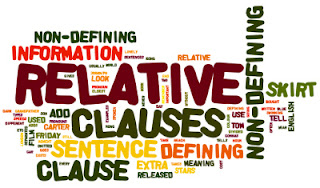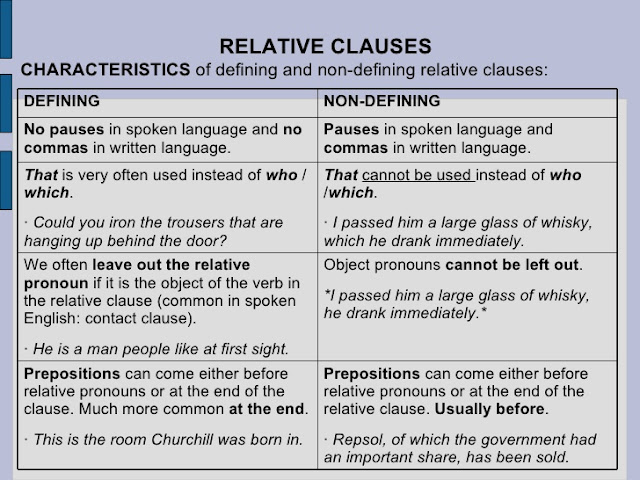Need to slow down. Music always helps.
Goodnight...
Goodnight...
Os facilito un listado por orden alfabético de Phrasal Verbs que puede seros mucha utilidad.
Hay cientos y cientos de Phrasal Verbs. No se trata de volverse locos, pero sí de unificar listados y diseñar uno donde aparezcan los indispensables, los más frecuentes y útiles para nosotros y el nivel de inglés que tenemos o al que aspiramos. Elaborar un listado para realmente incorporarlos a nuestra expresión oral y escrita. Si no los utilizamos, los olvidaremos.
Pincha aquí y echa un vistazo.
(Gracias, Mª Carmen NF!)
You should know lots of phrasal verbs if you want to reach a good English level. However, it’s difficult to learn phrasal verbs and use them naturally because...
- There are hundreds of them.
- Many times you can´t guess their meaning.
- One phrasal verbs can have different meanings.
- Some phrasal verbs can be separated while some other can’t
- There are two words phrasal verbs but there are also three words phrasal verbs
Why don´t you practise Phrasal Verbs using flashcards? Click here and good luck!
Para muchos de vosotros, que andáis preparando o estáis ya en plenos exámenes B1/B2, un listado bastante útil que os ayudará a repasar verbos esenciales y sus correspondientes preposiciones.
Vamos allá.
To accuse (someone) of (something)
To apologise to (someone) for (something)
To ask (someone) about (someone / something)
To ask (someone) for (something) (pedir algo)
To believe in (something)
To belong to (someone)
To blame (someone / something) for (something)
To borrow (something) from (someone)
To compare (something) with (something)
To complain to (someone) about (someone / something)
To concentrate on (something)
To crash into (something) (estrellarse)
To depend on (someone / something)
To divide (something) into (parts)
To dream about (someone / something)
To explain (a problem) to (someone)
To forgive (someone) for (something)
To happen to (someone / something)
To hear about (something)
To invite (someone) to (a party)
To laugh at
To listen to (someone / something)
To look after (someone / something)
To look at (someone / something)
To look for (someone / something) (to try to find)
To look forward to
To object to (someone / something)
To pay (someone) for (something)
To persist in
To prefer (someone / something) to (someone / something)
To prepare for
To protect (someone / something) from (someone / something)
To provide (someone) with (something)
To punish (someone) for (something)
To remind (someone) of (someone / something) (me hace redordar)
To remind (someone) about (something) (recordarle a alguien algo)
To run into (something) (estrellarse) / (someone) (atropellar)
To spend (money) on (something)
To shout at (someone) (angrily) / to (someone) (para que se entere)
To smile at
To speak to (someone) about (someone / something)
To succeed in
To suffer from (an illness)
To take care of (someone / something)
To talk to (someone) about (someone / something)
To thank (someone) for (something)
To think about (someone / something) (reflexionar sobre algo, recordar)
To think of (pensar en algo, imaginar, recordar)
To throw (something) at (someone / something) (para golpearle)
To throw (something) to (someone / something) (para que lo coja)
To translate (a book) from (one language) into (another language)
To wait for (someone / something)
To warn(someone) about (someone / something)
To write to (someone)
(http://www.aulafacil.com)
(http://www.aulafacil.com)
Re-post. Para mis alumn@s, para mis hijas, para todos los jóvenes, para cada uno de nosotros. Ahora que empieza a hacer estragos el cansancio y necesitamos toda la motivación del mundo.
Defining relative clauses
We use defining relative clauses to give essential information about someone or something – information that we need in order to understand what or who is being referred to. A defining relative clause usually comes immediately after the noun it describes.
They’re the people who want to buy our house.
Non-defining relative clauses
We use non-defining relative clauses to give extra information about the person or thing. It is not necessary information. We don’t need it to understand who or what is being referred to.
My sister Clare, who lives in Oxford, is doing the London marathon this year.
Relative Pronouns
who
|
people and sometimes pet animals
|
defining and non-defining
|
which
|
animals and things
|
defining and non-defining; clause referring to a whole sentence
|
that
|
people, animals and things; informal
|
defining only
|
whose
|
possessive meaning;
for people and animals usually; sometimes for things in formal situations
|
defining and non-defining
|
whom
|
people in formal styles or in writing; often with a preposition; rarely in conversation; used instead of who if who is the object
|
defining and non-defining
|
No relative pronoun
|
when the relative pronoun defines the object of the clause
|
defining only
|
Welcome to my blog!
I have created this blog especially for those who need English and also for those who love it. I hope you find this site useful.
If you have any suggestions, ideas, requests or just want to leave a message, please send me an email (cmsanchezh@gmail.com) or fill in this contact form.
Contact form
Popular Posts
-
Describing a picture is part of your Cambridge English Preliminary. Don´t panic, take your time and organise your ideas. Here you have ...
-
Cuando una persona desea comunicar lo que otra ha dicho, dispone de dos posibilidades: repetir las palabras textuales (Estilo ...
-
Defining relative clauses We use defining relative clauses to give essential information about someone or something – information that...
-
Have a look at this amazing aerial sight... Where is this land sculpture located? What´s its name?
-
Learning how to use gerunds and infinitives after a verb can be difficult in English, I know, but don´t panic. Let´s put our ideas in or...
-
This post is only for those who like challenge. Do you know the answers to these four questions? If so, leave a comment. Which is the...
-
There are many proverbs and quotations in English with passive structures which can help you understand life and language at the s...
Labels Cloud
1 ESO
3 ESO
4 ESO
About my country
adjectives
Art
Article
B1
Biographies
Books
British History
Causative
Collocations
Common mistakes
Comparatives and Superlatives
Conditionals
Connectors
Craft
Culture
Current affairs
Daily Situations
Descriptions
Educational Information
English is fun
Environment
Exercises
False Friends
Films
Future Tenses
Games
Geography
Gerund and Infinitive
Idioms
Imperative
Interesting Places
Interjections
Irregular Verbs
Job
Listening
Make vs DO
Mathematics
Mind maps
Miscellany
Modal Verbs
Paraphrasing
Passive
Past Continuous
Past Perfect
Past Simple
Past Simple/Present Perfect
Personal Information
Phonetics
Phrasal V erbs
Phrasal Verbs
Poetry
Prepositions
Present Continuous
Present Perfect
Present Simple
Projects
Pronunciation
Quantifiers
Question Tags
Quiz
Quotes and proverbs
Reading
Recipes
Reinforcement Activities
Relative Clauses
Rephrasing
Reported Speech
Saxon Genitive
Series
So/Such
Songs
Speaking
Spelling
Sport
Subject and Object Questions
Tense Revision
Time Expressions
Used to
Vocabulary
Writing
Blog Archive
Followers
Visitors
Geocounter
I am an Edublogger!
























